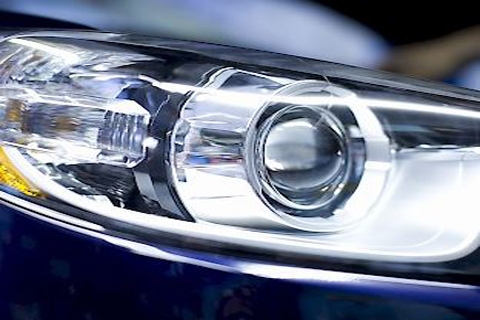The automotive industry has always been determined to make vehicles more efficient and environmentally friendly. Therefore, lighting is an essential feature that needs to be optimized as well. The solution? Enter automobile aluminum reflectors. They offer the perfect mix of high reflectivity and durability, making them perfect for LED headlights.
In this blog post, we will go through the advantages of automobile aluminum reflectors and why they are becoming the future of efficient lighting.
Importance of Automobile Aluminum Reflector
For decades, automotive manufacturers have been seeking ways to make vehicles lighter and more fuel-efficient. One solution that has gained popularity in recent years is the use of automobile aluminum reflectors.
By replacing traditional steel reflectors with lightweight aluminum alternatives, manufacturers can reduce the overall weight of vehicles without sacrificing safety or performance. Aluminum is also highly reflective, which allows reflectors to better direct light from headlamps and improve visibility for drivers. This makes aluminum reflectors essential for providing a safer and more efficient driving experience.
As the push towards more sustainable and environmentally-friendly transportation options continues, the importance of automobile aluminum reflectors cannot be underestimated.
High Reflectivity Rate:
The key feature of aluminum reflectors is their high reflectivity rate. They can reflect up to 98% of the light that enters them, making them perfect for LED headlights. When used in headlights, they ensure that 98% of the light produced by the LED is reflected back towards the road, resulting in enhanced visibility, better illumination, and, ultimately, a safer driving experience. Furthermore, they significantly reduce light loss by reflecting the light onto the road, offering better energy efficiency.
Durability:
Unlike plastic alternatives, automobile aluminum reflectors have higher durability and can withstand harsh weather conditions, such as extreme heat or cold. They can also withstand high-pressure sprays used during car washes. Along with longevity, this attribute makes them an ideal choice for car manufacturers aiming for longevity and sustainability in their designs.
Corrosion Resistance:
Automobile aluminum reflectors are corrosion-resistant, meaning they cannot rust or corrode, unlike other metals. The reflector plays a crucial role in maintaining the quality and longevity of headlights, and when an aluminum reflector is used, it means that the lighting component will last a very long time and stay in great shape.
Sustainable choice:
The use of aluminum reflectors is an eco-friendly alternative to other materials used in the production of headlights, especially plastic. The aluminum reflectors are designed in a way to age slowly, requiring minimal maintenance, and consequently, will not end up in landfills. Therefore, this makes them a more sustainable choice for car manufacturers and consumers alike.
Aesthetic enhancement:
The polished finish of aluminum reflectors also offers a sleek look to cars. With OEMs and automakers stressing the importance of brand aesthetics, aluminum reflectors provide a unique and polished look that complements the design of many cars.
Conclusion:
Overall, an automobile aluminum reflector is an excellent choice for any car manufacturer aiming for longevity, sustainability, safety, and aesthetic appeal. Their high reflectivity rate, durability, corrosion resistance, and sustainability make them a perfect alternative to other materials like plastics. Moreover, the aluminum reflectors have better design flexibility and manufacturing efficiency, which is crucial for mass production. In conclusion, aluminum reflectors offer superior material properties, increased lighting efficacy, and numerous advantages over their counterparts, making them the future of efficient lighting in the automotive industry.


